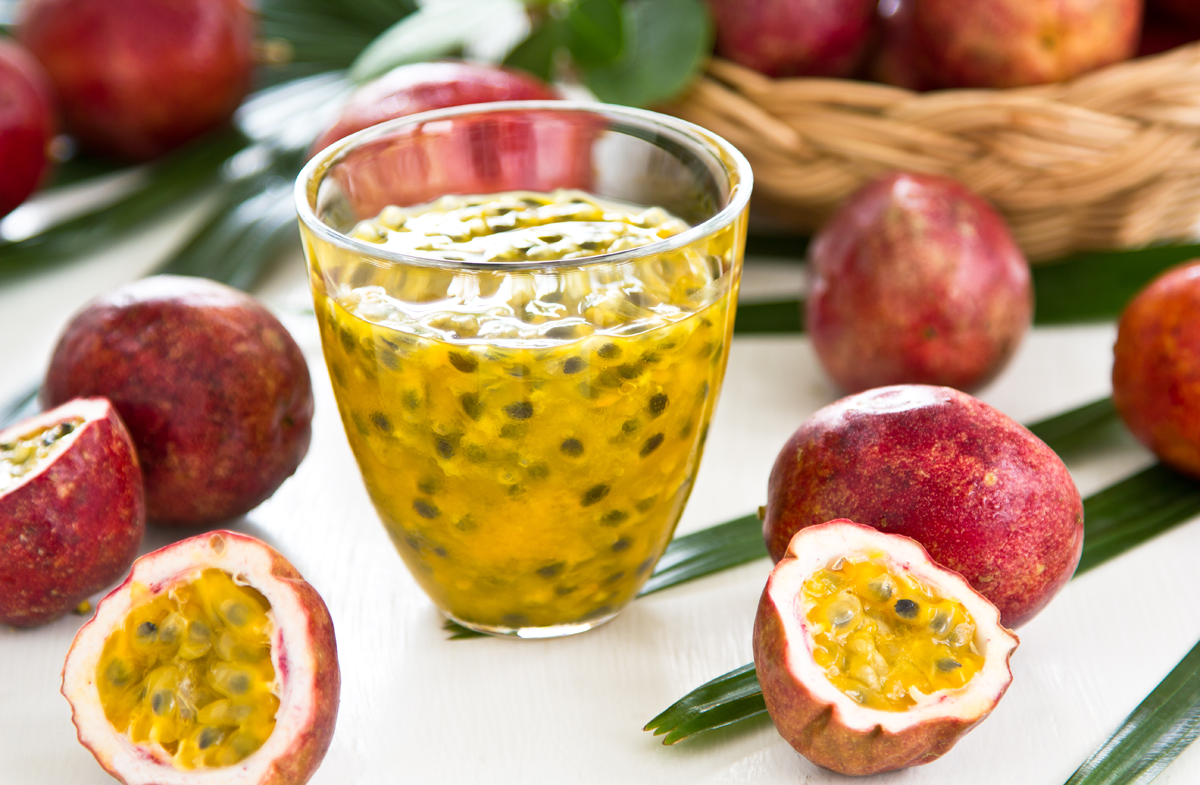Its name is exotic and invokes a bit of mystery, but what exactly is a passion fruit? It’s thought that Christian missionaries gave the vine its name when they observed that parts of the flowers resembled Christian teachings about the resurrection of Christ. The color of passion fruit is purple or golden yellow.
The purple passion fruit is native from southern Brazil through Paraguay to northern Argentina. It is subtropical and prefers a frost-free climate. The passion fruit is a vigorous, climbing vine that clings by tendrils to almost any support. It can grow 15 to 20 ft. per year once established and must have strong support. It is generally short-lived (5 to 7 years).
It hence is an intriguing and mysterious fruit that has a surprising number of health and medicinal benefits for those fruit lovers who add it to their diet. Some of these benefits include
- Passion fruit’s ability to prevent cancerous growth – Passion fruit contains a high amount of Vitamin A and Vitamin C, both are strong anti-oxidants. They neutralize these free radicals and protect from cancer
- Enhance digestion power – Passion fruits are a very strong source of fiber, and a single serving provides the human body with approximately 98% of its daily requirement. Fiber is an essential component of a healthy diet since it is the substance that facilitates healthy digestion of food and the regulation of bowel movements.
- Boost immune function – contains Vitamin C stimulates the activity of white blood cells and the rest of the immune defense system, thereby protecting you from common illnesses and serious diseases at the same time.
- Improve eyesight and skin health – It is a phytonutrient and a precursor to Vitamin A. So it is beneficial to protect eyes from vision loss and improve eyesight.
- Regulate fluid balance in the body, lower blood pressure, and boost circulation – When combined with the vasodilation properties of potassium, the high iron and copper content of passion fruit can really make an impact. Iron and copper are both essential components of red blood cell production.
- Improve bone mineral density -it is a very important fruit for increasing mineral bone density and bone strength. Some of these minerals are integral parts in creating additional bone matter, strengthening existing bone matter, and speeding up repair
Furthermore, it reduces signs of premature aging, lessens inflammation, improves sleeping habits, and eliminates asthma. The long list of health benefits commonly attributed to passion fruit is due to the nutrient, mineral, and vitamin content of the fruit, which includes antioxidants, flavonoids, vitamin A, vitamin C, riboflavin, niacin, iron, magnesium, phosphorus, potassium, copper, fiber, and protein. The percentages of many of the vitamins and minerals are shockingly high, and passion fruit is a great addition to the diet that can result in a number of amazing health benefits.

